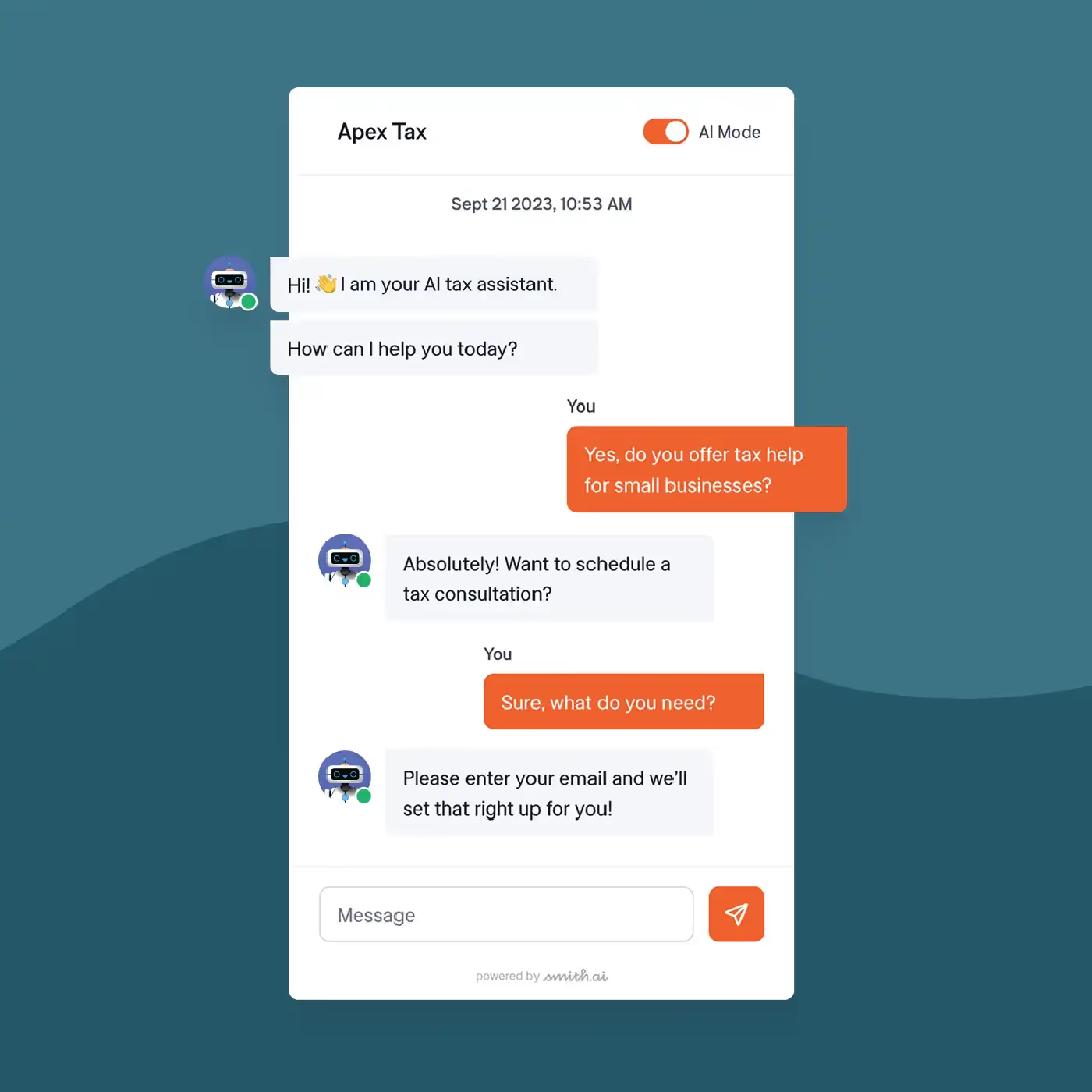Call Scripting: What It Is + How To Do It Right
Call Scripting: What It Is + How To Do It Right

Like a coach prepares a game plan for the next matchup, call scripting is about crafting the perfect playbook for customer interactions. When poorly orchestrated, customer calls can become problematic for companies. They can lead to missed business opportunities and bad reviews. Effective call scripting, on the other hand, helps receptionists and agents achieve the goal of the call, whether that's making a sale, addressing a customer complaint, or simply providing information.
In this post, we'll explore what call scripting is, why it's so important, and how to develop an impactful call script for your business.
What is call scripting?
Call scripting is the method of creating and using predefined talking points on sales calls — both inbound and outbound — and in customer service to provide guidance and structure during telephone interactions with customers. A call script serves as a step-by-step guide that forms the ideal flow of a conversation. Unlike call flow, which is more concerned with the overall routing and structure of a call, call scripting places greater emphasis on the actual dialogue and responses that happen within a conversation.
Call scripting is a way for businesses to make sure every call is handled professionally, compliantly, and consistently but with enough flexibility to keep it human and personal. Scripts give agents confidence by anticipating questions and objections while allowing them to handle complex conversations effectively.
While scripting a call doesn't mean having to follow the script word for word, prompts can make the call flow more smoothly.
Why are call scripts important? 5 benefits
Relying on memory or improvising during a call is a recipe for disaster. Call scripting is widely used in customer service, telemarketing, and cold calling. But regardless of call types, it provides the same advantages for businesses.
- Ensures consistency: Call scripts provide agents with a clear outline of what to say, meaning they will deliver the same high-quality experience on every call. Customers won’t get different answers to the same questions depending on who answers the phone, minimizing frustration and increasing the likelihood of positive reviews.
- Increases efficiency: Working with a ready-made framework is an excellent way to increase productivity. With information at their fingertips, agents will spend less time looking for answers in a moment of doubt. Additionally, if an agent experiences a teachable moment that deviates from the script, they can contribute to improving the document.
- Minimizes errors: It's easy to miss details in a fast-paced environment like a call center. Call scripting reduces the chances of providing incorrect information or overlooking important details by documenting and including conversation touchpoints in the right places.
- Improves audience satisfaction: Customers appreciate professional, helpful interactions that adhere to proper telephone etiquette. Call scripting helps agents sound polished, knowledgeable, and solution-focused.
- Maintains compliance: For businesses in highly regulated industries, call scripting ensures agents provide legally-approved information. Compliance is critical to avoid costly lawsuits and fees — and call scripts mitigate those risks.

10 steps to effective call scripting
The worst time to think of what to say is when it’s leaving your mouth, especially when the company's reputation is on the line. When you script out your calls in advance, you sound more confident and in control of the conversation. A call script isn't about being robotic — it's more about having a strategy in place for the call.
These 10 steps go over developing effective yet flexible call scripts that won't have agents sounding “salesy,” clumsy, or inauthentic.
1. Reference call history
Previous calls are a gold mine of information that can help shape a call script. Analyze recordings of client calls to uncover frequently asked questions, common objections, and the messaging that resonated most with callers.
Incorporating this information into the call script allows you to anticipate what customers might bring up and prepare appropriate responses ahead of time. This helps ensure your script is tailored to your audience's needs.
2. Define your objective
Scripting an inbound customer service call requires a different approach than outbound cold calling a prospect. In order to develop an effective call script, you must first know what you're trying to accomplish.
For example, your objective might be to:
- Introduce a new product or service
- Set an appointment
- Gather customer feedback
- Provide technical support
- Handle customer complaints
- Upsell or cross-sell to inbound callers
With a concrete objective in mind, start mapping the most important points and details that will help agents reach that goal. Scripting calls around a single goal prevents irrelevant tangents and keeps the conversation on track, which leads to more meaningful interactions and higher success rates.
3. Know your audience
The best call scripting is done from the customer's perspective, and that starts with understanding them inside and out. Are you speaking with busy professionals? Tech-savvy millennials? Retirees?
Cross-reference this data with the calls you monitored in Step 1. Tailor your script to your target audience’s needs using language that resonates with them. A well-researched script prepares agents to connect with each customer, which increases the likelihood of a successful call.
4. Start with a friendly greeting
The opening is the most critical part of any call, whether inbound or outbound. Begin the script with a warm and friendly greeting, ensuring the call starts on the right foot. A simple “Good morning!” or “How are you today?” can go a long way in setting a positive tone for the conversation.
A courteous welcome shows the customer that the agent they're speaking with values their time and is focused on addressing their needs. It also encourages them to reciprocate the agent's friendly demeanor.
5. Anticipate common objections and questions
This part is less about scripting and more about preparing agents for diverse scenarios. Anticipating common questions and objections, like price increases or privacy concerns, allows agents to handle them confidently and keep the conversation moving in a positive direction. Providing guidance for these scenarios minimizes confusion and maximizes the productivity of each call.
6. Add personalization
The best call scripting is like jazz — it allows for a bit of improvisation. Give agents the flexibility within the script to adapt to each unique caller. This balance keeps the conversation authentic and engaging, rather than sounding like a robot reading from a teleprompter.
For example, advise agents to:
- Use the caller’s name when possible. Hearing their own name helps the caller feel recognized and builds rapport.
- Share relevant details about the company to build credibility.
- Ask open-ended questions to better understand the caller’s situation or objections, then provide tailored responses and solutions. Keep questions friendly so the customer doesn't feel like they're being interrogated.
- Thank the caller for their time, business, or patience. A little appreciation and gratitude can go a long way.
7. Prioritize customer needs
Customer-centric call scripting is vital regardless of call type, as it fosters a positive experience and builds trust. Building scripts to address customer needs ensures that each interaction is personalized and empathetic. This leads to higher customer loyalty and potentially increased business opportunities, as satisfied customers are more likely to recommend services or products to others.
Sales scripts should employ a consultative selling approach, which focuses on solving the customer’s problems instead of pushing a sale. This strategy positions agents as trusted advisors and develops stronger, more meaningful connections with their prospects.
8. Include compliance guidelines
To ensure compliance with legal standards and company policies, call scripts should provide specific guidance to agents. This is especially crucial in outbound sales and regulated industries like finance and health care. These guidelines help agents avoid improper or unlawful conduct during calls.
Agents must follow all compliance guidelines strictly — failure to do so can result in legal consequences for the company. Regularly review and update call scripts to reflect the latest laws and regulations.
9. Outline the closing
Regardless of context, all calls should end in a professional, polite manner that leaves the door open for further contact.
Agents should summarize the key points of the conversation and any agreed-upon next steps, like a follow-up email or call with further information. They should politely ask clients if they have any other questions or concerns before ending the call.
10. Test the script
Once you’ve developed your call script, it’s time for a test run. Start by distributing the call script to a few agents to use on calls during a trial period. Get their feedback and see what’s working and what needs improvement. Ask them:
- How did callers respond?
- Were there any objections or questions the script doesn’t address?
- Did the script flow naturally, or did parts of it feel stiff or awkward?
- Were there any parts you had trouble following?
Make adjustments based on feedback to improve the script’s effectiveness before rolling it out to the entire team. Consider carrying out an A/B test, creating two versions with small variations so you can better identify what leads to the best results.
Call scripts should be living documents. Their content can and should be adjusted and adapted as customers' needs and questions change over time.

Call scripting tips
When it comes to call scripting, a few best practices will help ensure your agents are set up for success.
- Provide script training: Even with a solid call script in place, agents still need to get familiar and comfortable with it. Schedule time for them to review the script, ask any questions, and role-play scenarios. Regular refreshers are also helpful.
- Update scripts regularly: As your business, products, and customer needs change, so should your call scripts. Review them at least once a quarter and make updates to messaging, offers, compliance details, or anything else that may have changed. Even small tweaks can make a big difference to call flow.
- Gather agent feedback: The agents using your call script have valuable insight into what’s working and not working. Set up a process for them to provide feedback, whether through surveys, meetings, or an open-door policy. Then review the feedback and use it to make improvements to the scripts.
- Encourage flexibility during calls: While call scripting provides guidance, agents (especially more senior ones) should feel empowered to adapt to unique caller needs and go off-script when appropriate. As long as agents are staying compliant and achieving the objective, customization can lead to better experiences for both the agent and the customer.
- Maintain a human touch: Customers don't like talking to robots. Encourage agents to sound natural, show empathy, build connections, and provide that personal touch. Customers will appreciate the human connection.
- Leverage AI to support agents: AI-powered tools can support call scripting by reducing repetitive tasks, automating data lookup, and streamlining processes. Our AI-led answering solution, AI Receptionist, enables human agents to engage in friendly, efficient, and natural conversations.
Call scripting with Smith.ai
Call scripting is about creating a smooth, effective, and enjoyable interaction for both the customer and the agent. It requires an investment of time and effort, but the payoff may very well be increased sales, improved customer service, and a boost to your company’s bottom line.
Don't have the time to build and execute a call script? Schedule a consultation to learn more about our virtual receptionists and how Smith.ai uses AI and technology to help our live agents deliver prompt, professional, and personalized assistance to your customers and prospects.
Take the faster path to growth. Get Smith.ai today.
Key Areas to Explore

Your submission has been received!














.svg)



